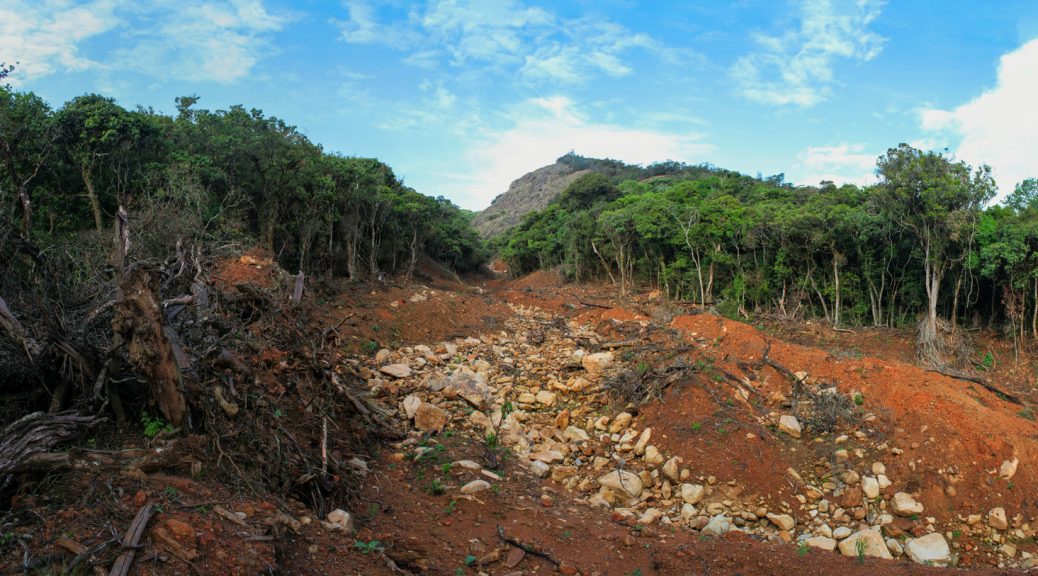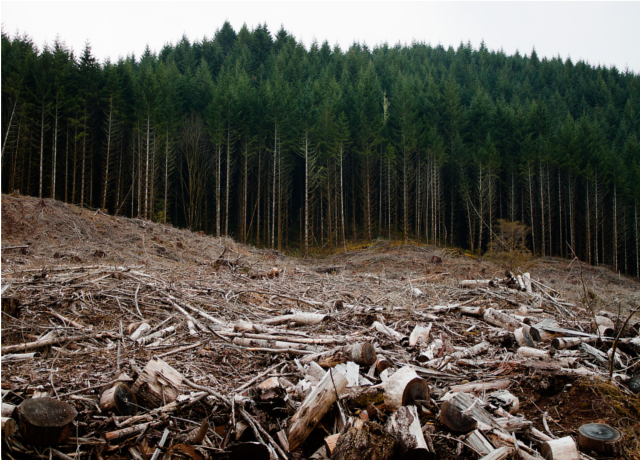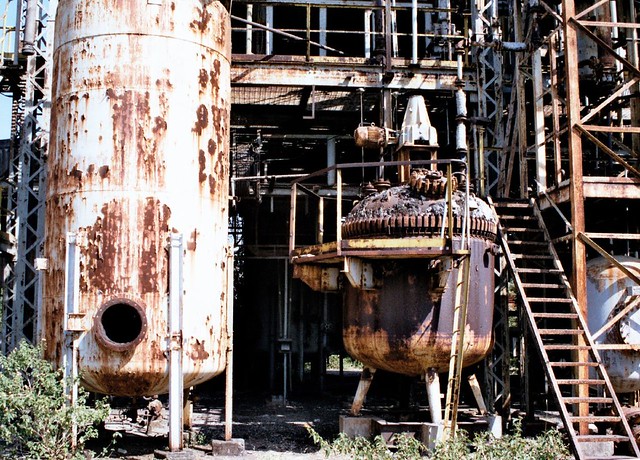This news article describes the impact of corrupt legislation on ordinary working people. The organised protests and solidarity of the public with farmers is an excellent example of how coordinated resistance can enable change.
Editor’s note: DGR strongly opposes the three new farm laws that have inspired the farmer’s protests in India. However, we do not necessarily agree with all of the demands of the protestors. Continue reading Suspension Of Farm Laws In India →

Godwin Vasanth Bosco reports on extreme precipitation that has fallen on the Nilgiri plateau of southern India the last few years. These extreme and unprecedented rain events have led to massive landslides and other ecological damage. Little has been done to address the crisis.
Featured image: A massive landslide in one of the largest sholas in the Avalanche region of the Nilgiris, with hundreds of native trees and the stream ecology washed away. Continue reading Peril In The Hills: Extreme Weather A Danger For Nilgiri Ecosystem →
Are indigenous people backwards? Do they really need to be ‘rescued’ from their primitive way of life and introduced to this wonder of human civilization? Or is this a racist simplification?
In this piece Chris challenges the notion that civilization is the ultimate way of life — a notion that has been used to justify genocide against indigenous people for a long time.
Continue reading Are Indigenous People Backwards? →

बाराको निजगढ वनबाट २४ लाख रूख कटानी गरी निजगढ विमानस्थल बनाउने प्रस्तावना छ। यस क्षेत्रकै सबैभन्दा जैविक विविधताले सुसज्जित क्षेत्र हो। पर्यावरणीय र आर्थिक दुबै पाटोले कमजोर परियोजनामा अब जनस्वास्थ्यको पाटो पनि आवश्यक रहेको छ।
Continue reading कोरोना संक्रमण पश्चात निजगढ वनविनाश पुनर्विचार गर्ने की? →

This culture prioritizes economic gains over human and natural welfare. The series of toxic accidents in India (of which the Vishakhapatnam gas leak is only a near example) lay testimony to this fact. In such a culture, is it possible to hold the responsible actors accountable for their actions? Continue reading Vishakhapatnam Gas Leak: Who do We Hold Accountable? →
What is electric power worth? The coal power industry is responsible for an incredible amount of suffering and death via air, soil, water pollution and land destruction. This is not to mention the gathering climate crisis apocalypse. This piece discusses the cost of coal.
Continue reading Coal Plant Accident Kills Six in India →
This is the Asia Pacific chapter for Deep Green Resistance


